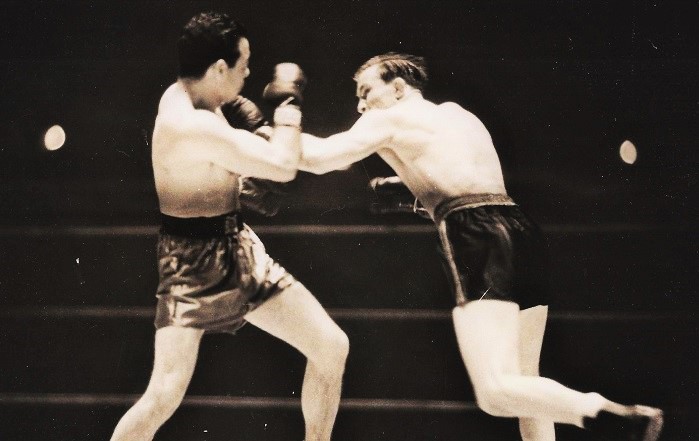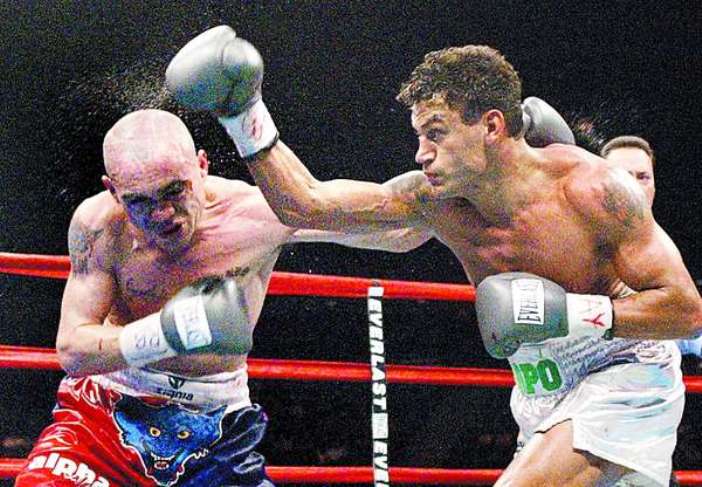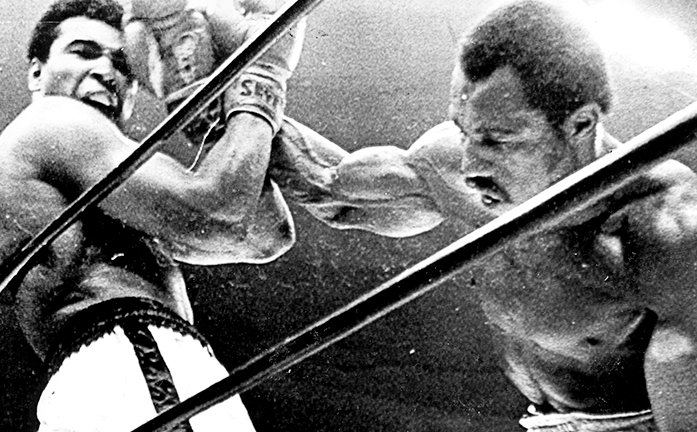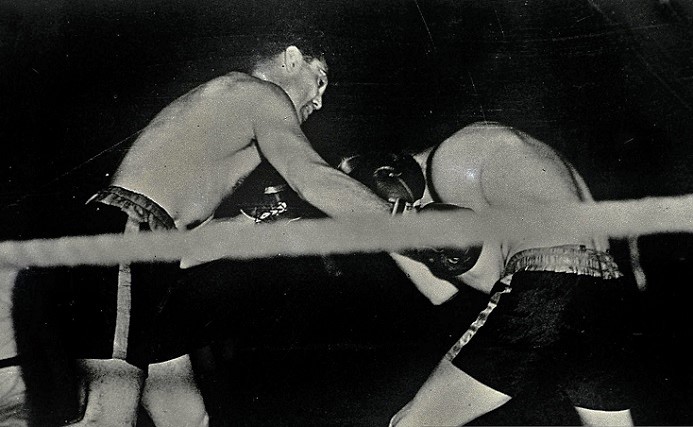Sept. 3, 1936: Ambers vs Canzoneri
Tony Canzoneri was already a lock for the Hall of Fame, not to mention an all-time great lightweight when he entered Madison Square Garden in May of 1935 to face a fresh-faced Lou Ambers for the vacant championship of the world. The great Barney Ross had walked away from the 135 pound title to compete at welterweight and Ambers vs Canzoneri was the obvious pairing to decide the next champion. But “The Herkimer Hurricane” was five years younger and his elder had a lot of hard miles on those frail-looking legs; the wiseguys pegged Canzoneri as the underdog.

So imagine their surprise when it was Canzoneri, not Ambers, who came flying out of his corner at the opening bell, throwing lethal right hands. He scored two knockdowns in round three and after holding off a late-round charge from Ambers he heard the cheers as he was awarded a lop-sided points win and his fifth world title. Ambers had been Tony’s sparring partner not that long before, but he hadn’t yet learned enough to better his old mentor. The first Ambers vs Canzoneri tilt surprised many and appeared to prove that there was still plenty of life left in the veteran scrapper.
Little did anyone know at the time, but it would prove to be one of Canzoneri’s last great performances. While only twenty-six, he had competed in over 130 pro bouts, including some grueling battles with Ross, Benny Bass, Kid Chocolate, Frankie Klick, Billy Petrolle and many others. And in fact, between that first clash with Ambers and the second, Canzoneri answered the bell eleven times, all victories, but there were some punishing scraps along the way, including tough distance battles with Klick and Jimmy McLarnin. Meanwhile Ambers, with only fifty matches to his credit, was just getting started.

But the oddsmakers saw only Canzoneri’s hot streak of fourteen straight wins and his one-sided victory over Ambers the previous May, and decided it was now the man from Herkimer, New York who was the underdog. How wrong they were, as that night it was clear to a near-capacity crowd in Madison Square Garden that Canzoneri just didn’t have it anymore.
This time it was Ambers who seized the initiative early, shaking Tony with a hard one-two in the third round and by the fifth the champion was bleeding from the nose. In contrast to their first meeting, Canzoneri had great difficulty finding the target with his dangerous right, though he staged a rally in rounds nine and ten to stay in it. But the late going saw Ambers back in control and when the final decision in his favour was announced none disputed it. Ambers was clearly the sharper, fresher and more effective fighter.
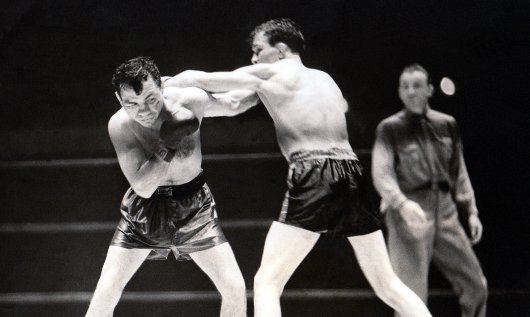
“I was slow tonight,” lamented the former champ in his dressing room, blaming his showing on a four month layoff. “Guess I needed a fight under my belt. I’d like to take him right back tomorrow.”
But most observers agreed that activity was not the reason for Canzoneri’s less-than-impressive performance.
“Youth licked Tony tonight,” declared former lightweight king Benny Leonard to the press. “After all, he’s been tossing leather for eleven years.”
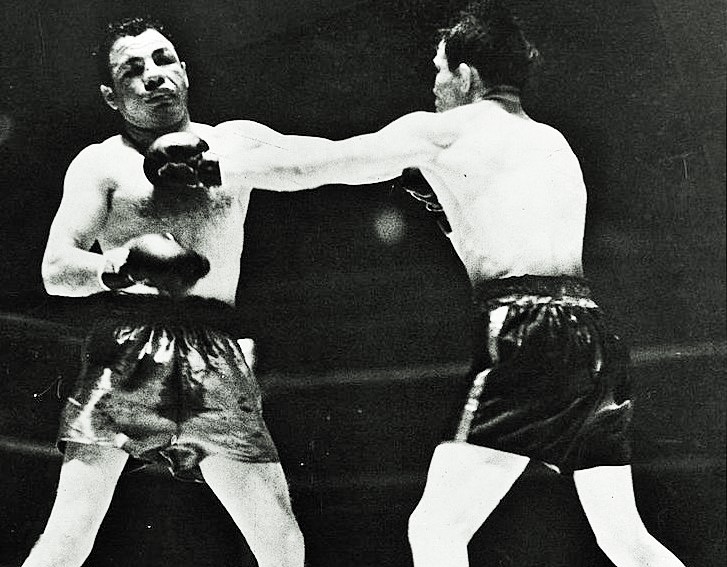
The new champion echoed that sentiment: “Tony beat me a year ago because he was too fast and experienced. Tonight he punched as hard as ever but he was terribly slow and I had no trouble hitting him. Of course I’ll give him another fight if he wants it, because I know he’ll never be the old Canzoneri again.”
And indeed “Canzi” took a bloody battering from McLarnin in his next outing and when he got another crack at Ambers in May of the following year, the result was an even more one-sided fifteen round win for “The Herkimer Hurricane.” Canzoneri was an all-time great, a legend, a fighter whose name and reputation would never be forgotten. But no one could deny: the glory days were fading fast.
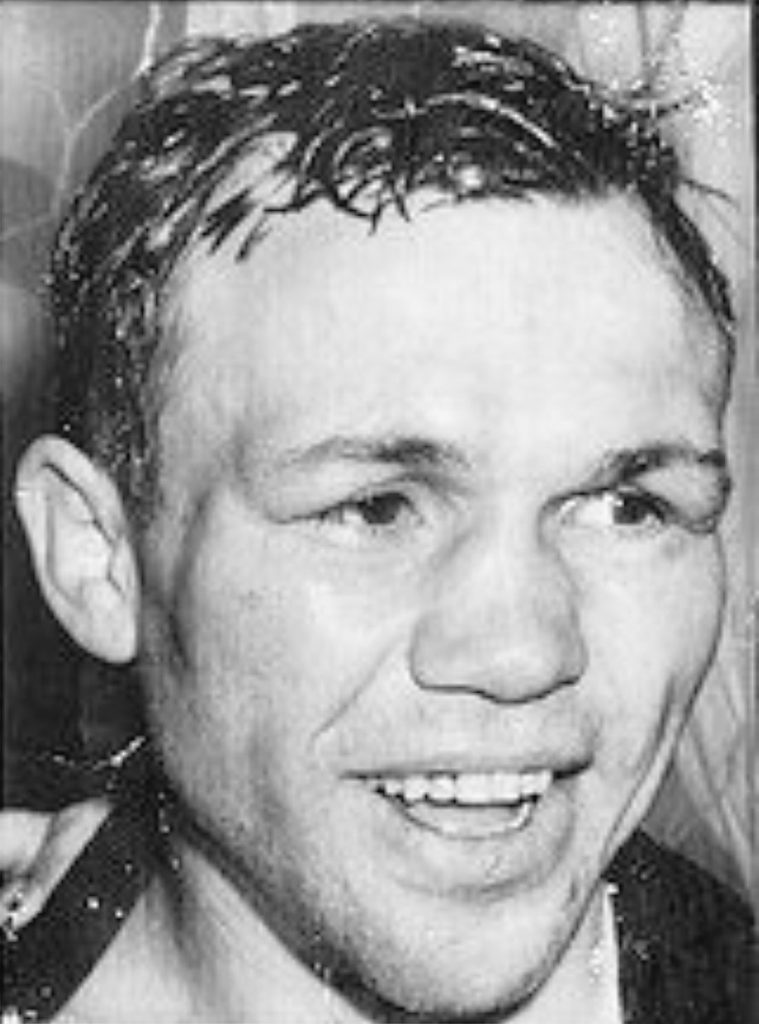
As for Ambers, he was, without a doubt, the best 135-pounder on the planet, the new king of the lightweight castle as Canzoneri, Ross and Petrolle all contemplated the sands of time and retirement. And indeed it would take a fighter as great as the immortal Henry Armstrong to get the better of him in 1938 and, after a grueling fifteen round war, relieve him of the title he had taken from “Canzi.” — Robert Portis

